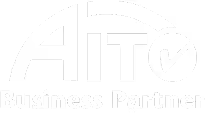Liability shift involves the reassignment of responsibility for fraudulent transactions, usually transferring it from the card issuer to the merchant when the merchant fails to implement secure payment technologies. If a merchant does not utilise advanced security features such as EMV (chip-and-pin) or 3D Secure, they bear the financial consequences of fraud instead of the card issuer. This is particularly crucial for travel companies, which often handle high-value transactions. Grasping and effectively managing liability shift is vital for minimising financial risks and preserving customer trust.
Liability Shift in Travel Payments
In the travel sector, the concept of liability shift is crucial due to the substantial number of both online and offline transactions. With most travel bookings now taking place online, companies in this industry face heightened exposure to fraud risks, making the implementation of secure payment solutions essential. By utilising technologies such as 3D Secure and EMV-compliant systems, travel businesses can shift the liability for fraudulent transactions to the card issuer. This not only mitigates the financial repercussions of fraud for travel merchants but also instills confidence in customers regarding the safety of their transactions, thereby enhancing trust in the booking experience.
For travel companies, adhering to robust security measures not only minimises fraud risk but also shields them from chargebacks associated with unauthorised transactions. By mandating that customers authenticate their identity through additional security steps, these companies can ensure that transactions are approved by the legitimate cardholder. This extra layer of protection is especially important for significant purchases, like international flights or extended vacation packages, where the financial stakes are high. Ultimately, embracing secure payment methods lessens liability risks for travel businesses and fortifies their overall payment security.
Liability Shift Challenges
One of the primary obstacles faced by travel businesses, especially smaller or regional operators, is the expense and intricacy involved in upgrading payment systems to comply with the latest security standards. Many smaller travel firms continue to depend on outdated or legacy payment systems that are more susceptible to fraud, thereby increasing their liability. Transitioning to EMV-compliant terminals for in-person transactions or incorporating 3D Secure for online payments can represent a substantial investment in both time and financial resources. For these businesses, the dilemma of either absorbing upfront costs for system enhancements or risking liability due to fraud presents a challenging balancing act.
Moreover, understanding the requirements for liability shift can be complicated, as various payment methods and regions may enforce different security standards. Travel companies catering to a global clientele must be aware of diverse regulations and ensure their payment systems are compliant across all relevant markets. This often necessitates collaborations with multiple payment providers and investments in technology to facilitate secure processing for both domestic and international transactions. Failing to meet these standards not only heightens liability but can also result in reputational harm if customers view the booking process as insecure.
For travel companies that heavily depend on MOTO (mail order/telephone order) transactions, such as traditional travel agencies or businesses catering to customers who prefer not to book online, the risk of liability is even more pronounced. MOTO payments lack the additional security measures available in online or in-person transactions, leaving merchants more vulnerable to potential fraud and chargebacks. These companies must diligently manage liability by implementing fraud prevention strategies and clearly communicating payment policies to their customers.
How Felloh can Help with Liability Shift
Felloh assists travel companies in effectively managing liability shifts by incorporating vital security measures such as 3D Secure and Strong Customer Authentication (SCA) into their payment systems. This integration allows for the transfer of liability for fraudulent transactions to the card issuer when customers undergo additional authentication, thereby alleviating the financial strain on travel businesses. By offering secure payment solutions, Felloh enables these companies to adhere to the latest security standards, significantly reducing their risk of fraud-related losses.
Additionally, Felloh’s platform provides travel businesses with real-time insights and transaction status reporting, empowering them to monitor liability shifts and proactively address potential fraud risks. With features like automated alerts and risk assessment tools, Felloh equips travel companies to pinpoint vulnerabilities in their payment processes and respond swiftly to mitigate threats. This transparency not only shields businesses from chargebacks but also instills confidence in customers regarding a secure booking experience.
Moreover, Felloh’s integration with various acquirers and support for alternative payment methods, including open banking, offers travel companies versatile options that bolster payment security. By diversifying payment methods and implementing robust authentication across platforms, Felloh enhances customer trust and enables travel companies to meet security protocols without sacrificing the customer experience. Consequently, Felloh is instrumental in helping travel businesses manage liability shifts efficiently, protecting their revenue and fostering trust in a secure, dependable payment process.









.svg)





